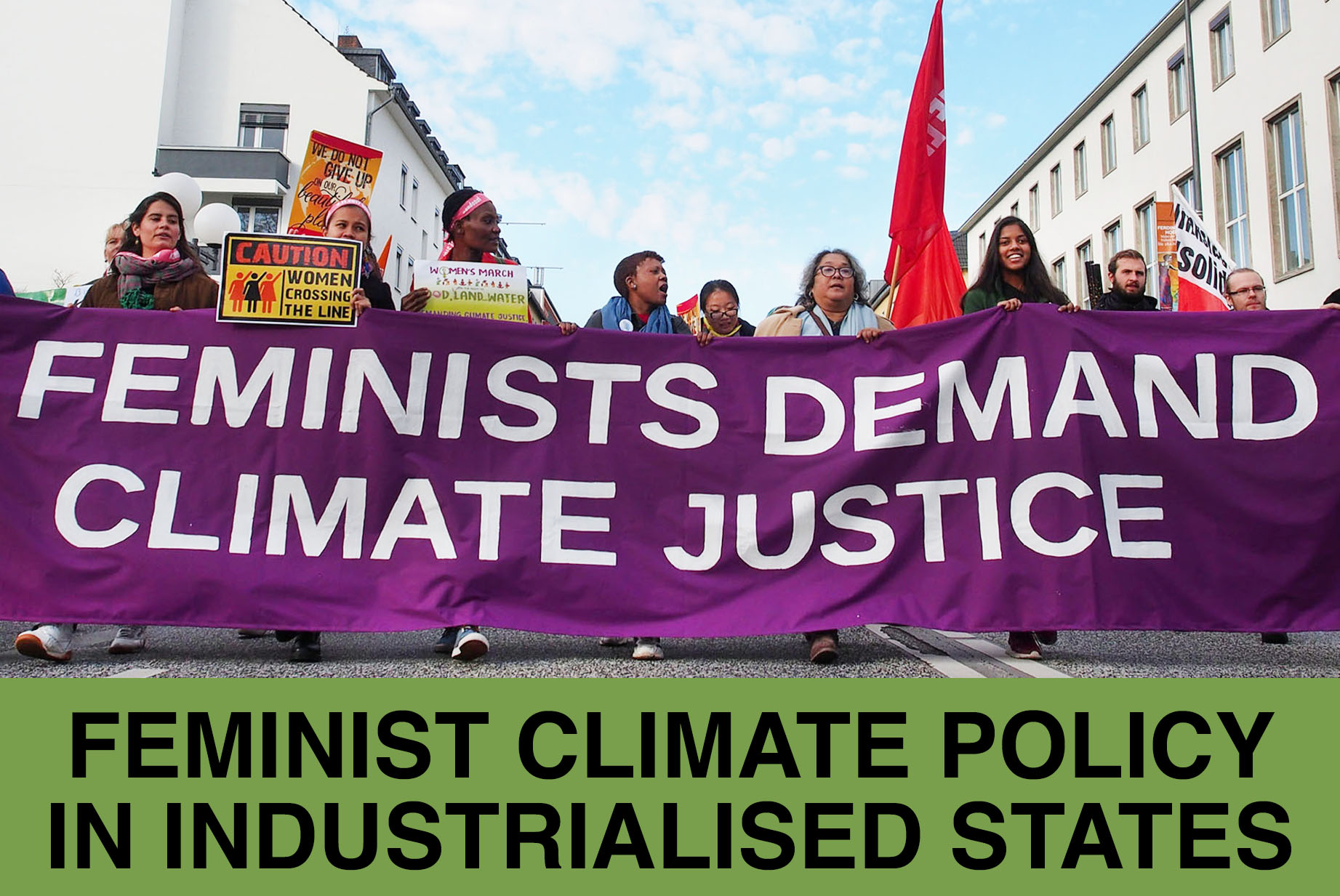Constructing a Feminist Climate Emergency Response

As COP30, to be held in Belem, Brazil, approaches, it is instructive to consider what is needed to achieve a climate which will ensure a sustainable planet. The history of COPs is not encouraging: The Paris Agreement made at COP20 in 2015, committed to holding global temperature rise to below 1.5 degrees C above pre-industrial levels, and yet it is currently 1.6 degrees and rising. Business as usual, with the oil and gas industry vying with energy and water-hungry tech industries for influence, will not deliver the carbon savings we need.
Under General Secretary Christina Figueras, UNFCCC introduced a commitment to gender equality, particularly in country delegations. However, it is clear that gender equality is not denting the masculinist approach to environmental decision-making. As well as more women making decisions, we need a different kind of decision-making at every level of government.
Feminist Climate Policy in Industrialised States – a gender just climate emergency response*, argues that it’s not just the gender of those making decisions that needs to change, but the very way in which decisions themselves are made. Drawing on analyses of international programmes such as the European Green Deal, International Oceans agreements and Sweden’s Feminist Foreign Policy, and domestic programmes such as Copenhagen’s Mobility for All, Canada’s Covid-19 response, and Swedish cities’ climate policies, we present examples of how feminist activity has changed policy in more structural ways. Feminist-inspired methodologies such as participatory assessment workshops in Sweden, drama-based participation in Italy, and Photo-Voice in Indigenous land in Canada, point to more inclusive and profound engagement with local communities.
One chapter – authored by researchers at the Centre for the Study of the Production of the Built Environment at the University of Westminster and the University of California – highlights how a more feminist approach to construction leads to a more sustainable built environment socially and in relation to nature and climate change.
- Construction tradeswomen interviewed were, without exception, interested in green construction, many having experience with different kinds of installations, and considered it should be more widespread and consistently well paid.
- They expressed the need to value sustainable construction, and this means a closer relation between nature and labour, for example, giving greater worth to the work of sorting potentially reusable material, as well as more attention to people’s well-being and the land where construction takes place.
- The women emphasised that, for outcomes to be more successful, workers and all those involved in construction need to communicate with one another, valuing the knowledge produced from workers’ field experience.
- When women are integrated into a team, they observed positive changes on the job in terms of enhanced cooperation and collective problem solving, which are critical to improving the performance of sustainable building. The chapter shows the importance of hearing women themselves, women in all occupations and not just engineers and those in charge of environmental compliance. It presents the collective voice of a growing network of tradeswomen across North America and Europe on the importance of green construction and what this entails.
One of the book’s innovations is to include interviews with feminist climate leaders, in their own words. From Canada, Iceland, New Zealand, Norway and Spain, our interviewees demonstrate a surprising similarity in approaches that are collaborative, inclusive, cooperative, holistic and courageous. They have challenged prevailing vested interests (such as Airbnb in Barcelona and the car lobby in Oslo) and have brought previously excluded participants into decision-making in Canada, Iceland and New Zealand. And plenty more besides.
However, during the course of writing the book, the political scene has become more hostile to social justice and environmental protection, with right-wing interests favouring fossil fuels and big tech, and challenging diversity and inclusion principles and measures. To confront this, the book makes the point that the links between gender and climate backlashes must be made impossible to ignore.
The book is free to access online, and is available to buy in paperback here.
Susan Buckingham (Independent Researcher) and Linda Clarke, Coralie Guedes (ProBE, University of Westminster) and Vivian Price (California State University)
* Feminist Climate Policy in Industrialised States. A Gender-Just Climate Emergency Response, edited by Susan Buckingham, Martin Hultman, Gunnhildur Lily Magnusdottir and Karen Morrow
Join Us
Get in the loop! Sign up to receive future GJA Newsletters and Blogs here.
Join the debate
Send us your contribution to the debate. We will contact you about using it here on our News & Debate page.

